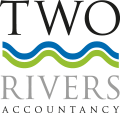
The SRA Standards and Regulations came into effect on 25 November 2019, replacing the SRA Handbook.
Changes in terms of the SRA Accounting Rules which may affect you are:
- The definition of client money now states 2.1″Client money” is money held or received by you: d) in respect of your fees and any unpaid disbursements if held or received prior to delivery of a bill for the same. This may, in some cases, mean that there is no need for a client account, including if all monies received in advance are in respect of fees and disbursements and clients are informed in advance (2.2).
- Any transfers made for paid disbursements will now need to be covered by a bill or notification to the client under 4.3 Where you are holding client money and some or all of that money will be used to pay your costs: a) you must give a bill of costs, or other written notification of the costs incurred, to the client or the paying party.
- There is no longer a rule on residual balances. The rule now states: 2.5 You ensure that client money is returned promptly to the client, or the third party for whom the money is held, as soon as there is no longer any proper reason to hold those funds.
- The SRA have always been keen for solicitors not to be seen as providing banking facilities via their client account. Rule 3.3 is very clear: You must not use a client account to provide banking facilities to clients or third parties. Payments into, and transfers or withdrawals from a client account must be in respect of the delivery by you of regulated services.
- Rule 8.3 now states that the COFA or manager must sign off the reconciliation, which is to be carried out in the same timeframe as under the old rules – every 5 weeks. Any differences shown by the reconciliation should be investigated and promptly resolved.
The word “promptly” appears several times in the SRA Accounting Rules, but there is no definition for this term. The solicitor will need to decide what is promptly and in reality, this may not mean that any changes are made in the current practices. It is, however, recommended to document the procedures and controls to ensure that the SRA and the reporting accountant are satisfied that the rules have been considered.
If you have any queries, please do get in touch.
https://www.sra.org.uk/solicitors/standards-regulations/index/






